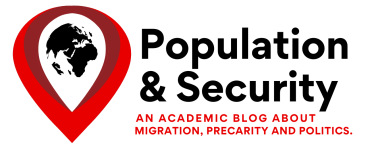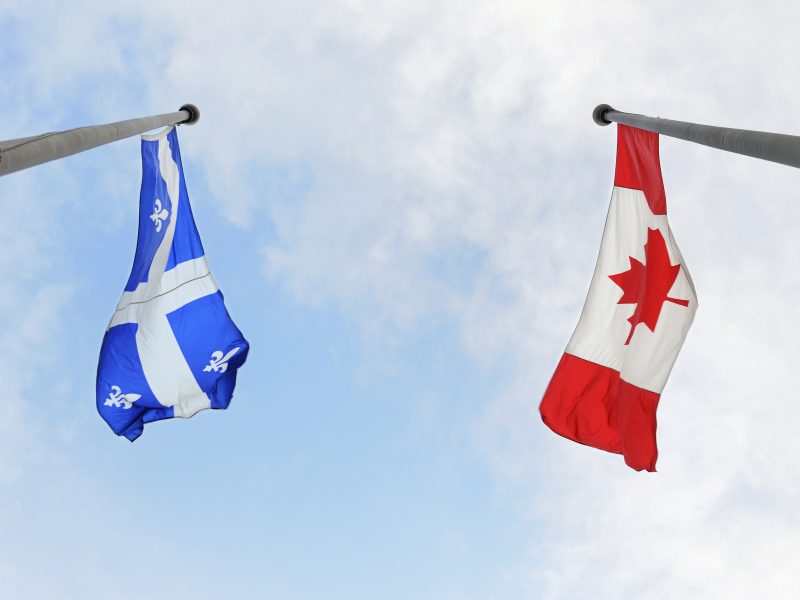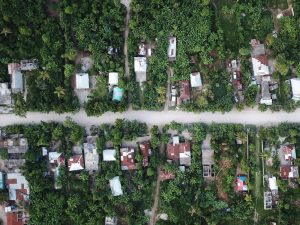New Policies, New Practices
When Sean Fraser and Ginette Petitpas Taylor— the Minister of Immigration, Refugees and Citizenship and the Minister of Official Languages, respectively— marked the tenth annual National Francophone Immigration Week, it captured a truth about contemporary immigration to Canada: there has probably never been an easier time for French speakers to settle here.
What are perhaps the most striking pieces of evidence that support this claim are the lengths to which different levels and branches of government have gone to encourage and facilitate the immigration of francophones to Canada over the past decade. The politics of Québec have long been informed by the province’s position as the only majority-French-speaking province in a primarily English-speaking Canada, and the CAQ (Coalition Avenir Québec) government under François Legault has seen continued promotion of the use of French in the province, often posing a challenge to stakeholders such as international migrants. In addition to proposed new measures to encourage francophone migrants to remain permanently in Québec, the province has also seen the introduction of Bill 96, the controversial language law that would, among other things, oblige many newcomers to receive most of their government services exclusively in French six months following their arrival.
But it is not only the government of Québec that has been expanding the role of the French language in the domain of migration. Recently, the federal government has launched the Welcoming Francophone Communities initiative— a program enticing French speakers to immigrate to places beyond la belle province, as far-flung as Calgary and Labrador City-Wabush, which would certainly raise the number of French-speakers in the rest of Canada. There are even interest groups at the provincial and territorial level outside of Québec that have emerged in recent years to facilitate French-speaking newcomers, such as Newfoundland and Labrador’s Horizon T-N-L and central-southwest Ontario’s Réseau en immigration francophone du Centre-Sud-Ouest de l’Ontario.
Linguistic Demographic Engineering
The encouragement of French speakers settlement in Quebec and Canada is in essence a form of demographic engineering –i.e. government policies meant to influence the size and composition of a population— in particular a form of demographic addition, where the migration of a specific group to a given area is actively promoted.
But if the goal of the CAQ’s demographic engineering policies is to raise the number of French-speaking immigrants to Québec, their policies may not necessarily bring about this desired result. Offering government services almost exclusively in French to immigrants six months following their arrival will very likely lead to less non-francophone immigration to Québec, but neither Bill 96 nor other new policy proposals in Québec guarantees a great deal of migration of French-speakers to the province. Instead, these new measures largely facilitate the settlement of francophone migrants already residing in Québec, all the while excluding many immigrants or would-be immigrants who would not consider themselves capable of communicating with the government almost exclusively in French six months after their arrival. In other words, the exclusion of non-francophones does not mean that more French speakers will immigrate to the province. While it is true that there are opportunities available for immigrants to learn French free of charge, the six-month window has faced ample criticism from language experts, who have cautioned that such a short amount of time would not suffice.
Outside of Québec, the Welcoming Francophone Communities initiative appears to fulfill a deficiency in immigration programming for French-speakers beyond French-majority Québec without compromising the ability for non-francophones to immigrate. While it is true that for some federal immigration streams, immigrants may be required to present proof of knowledge of English or French, there are exceptions to this rule, such as immigration through family reunification streams.
What do Linguistic Migration Policies Reveal about Societal Security in Canada Today?
The new measures encouraging and facilitating francophone migration to Canada are evocative of societal security concerns regarding the place of the French language in Québec and nationwide more generally. The CAQ’s handling of migration, particularly non-francophone migration to Québec, has often been a source of controversy, with the immigration and labour minister, Jean Boulet, recently facing criticism for decrying that ‘[e]ighty per cent of immigrants go to Montreal, don’t work, don’t speak French, and don’t adhere to the values of Quebec… [t]he key is regionalization and francization’. Comments such as these remind interlocutors that the politics of immigration and language are powerful forces in societal security deliberations.
If the social fabric of a society (including its linguistic configurations) is effectively communicated as being under threat, then societal securitization can take place, as indeed it clearly has in Québec, where its francophone identity has been a topic of societal security for decades. It can be suggested that the efforts to foster francophone immigration beyond Québec are also meant to address a societal security concern felt across Canada, namely that Canada is in fact a bilingual country with thriving French-speaking communities across the country far-beyond Québec.
Clearly, Canada may benefit from encouraging francophone migration, as it has been reported in the latest Census that the amount of Canadians reporting French as their first language has diminished in just about every province and territory. Indeed, in a 2021 publication, the federal government has made it clear that it understands the significance that immigration bears upon the linguistic configurations of Canada and intends to depend on francophone migration beyond Québec in order to preserve francophone communities nationwide in the years to come.
Experiences of migration and language have long influenced dialogues of Québécois and Canadian identities— but clearly, both phenomena have garnered a considerable amount of attention (and criticism) for their impacts on (and potential threats to) Québec and Canada’s societal configurations. It is not clear what place the French language, among other languages, will play in the distant future of Québec and Canada. But for the time being, it is clear that extensive efforts are being made to preserve this French-language heritage, even if the decisions taken are not always without controversy.





